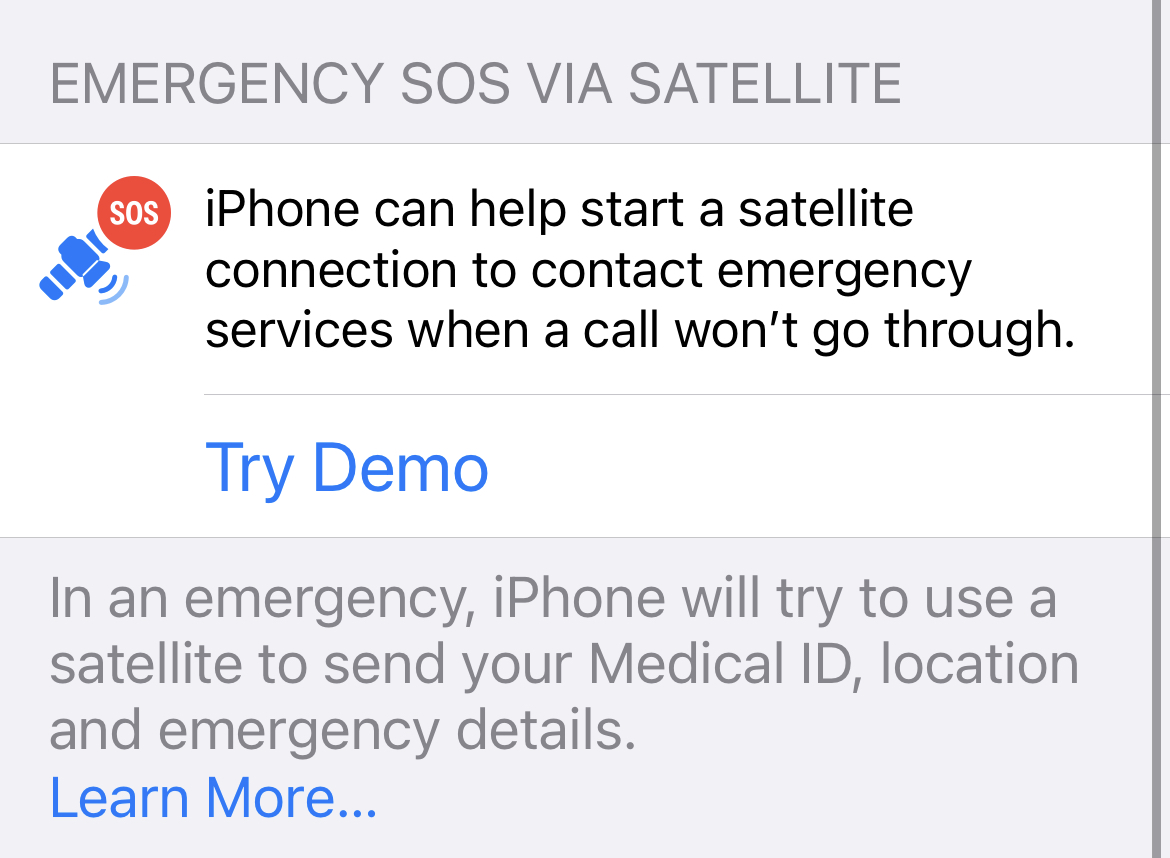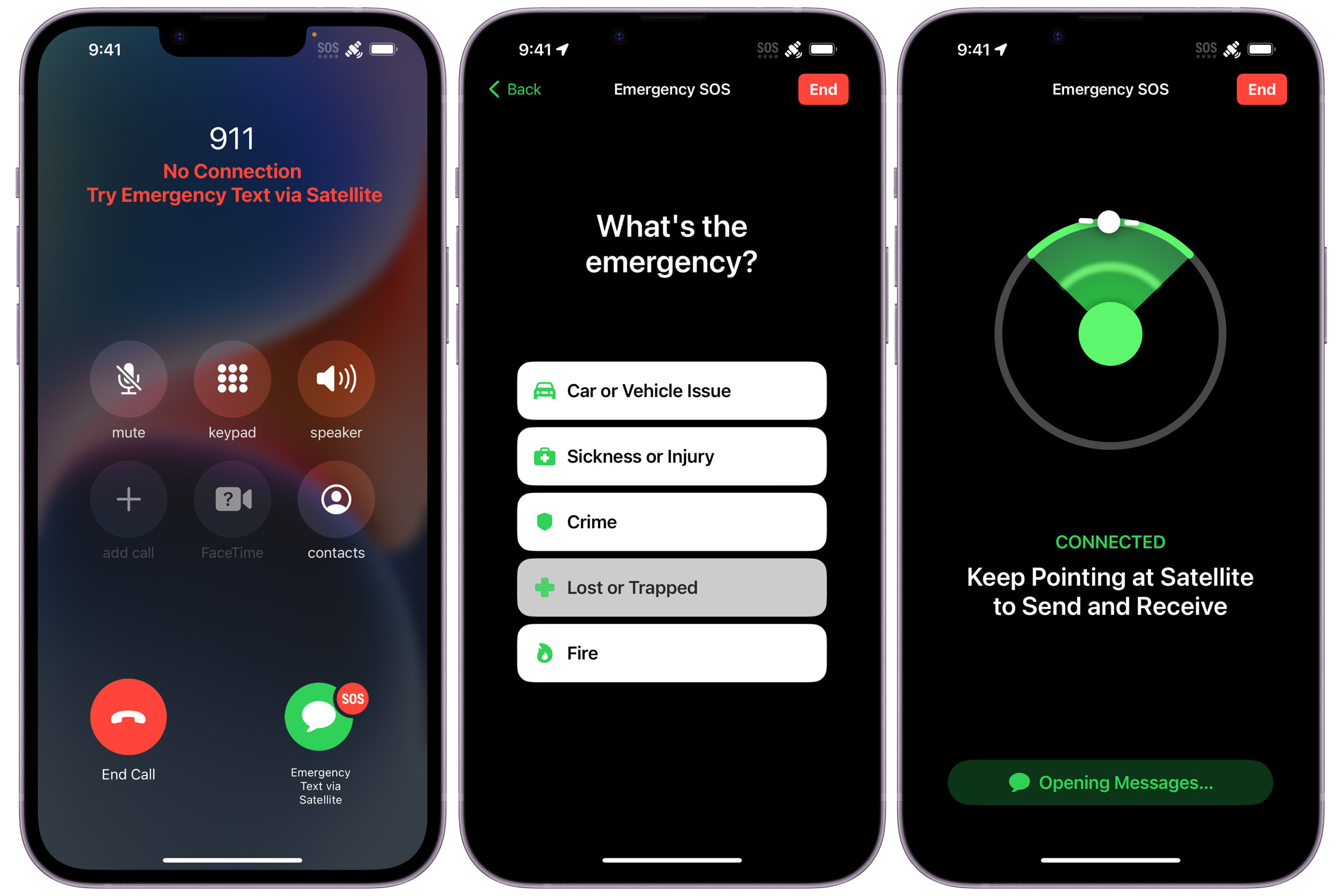Apple’s iPhone safety feature, Emergency SOS via satellite, is available worldwide and has already been credited for saving lives. Here’s everything you need to know about the feature.
Updated July 30, 2024: Emergency SOS via satellite is now available in Japan.
Do I need an iPhone 14 or iPhone 15 to use Emergency SOS via satellite?
Yes, the feature is only for the iPhone 14/15, iPhone 14/15 Plus, iPhone 14/15 Pro, and iPhone 14/15 Pro Max. It is not available on any other device, including the newest iPads or Apple Watches.
Is Emergency SOS via satellite available worldwide?
Emergency SOS via satellite launched in September 2022 in the U.S. and Canada, and expanded to France, Germany, Ireland, and the U.K in December 2022. In March 2023, the service reached Austria, Belgium, Italy, Luxembourg, the Netherlands, and Portugal and expanded to Australia and New Zealand as of May 2023. It launched in Japan in July 2024 with the iOS 17.6 update.
Do I need the latest version of iOS?
In the U.S., users need to be using iOS 16.1, which was released on October 25, 2022, or later. In other countries, the following updates are required: iOS 16.2 or later to connect to emergency services via satellite when you call or text 15, 17, 18, 114, 119, 191, and 196 in France, 110 in Germany, and 999 in Ireland; iOS 16.4 or later to connect to emergency services via satellite in Austria, Belgium, Italy, Luxembourg, the Netherlands, Portugal, Spain, and Switzerland. iOS 17.6 is necessary to use the feature in Japan.
You can update to the latest version of iOS in the Settings app by going to General and Software Update.
What does Emegency SOS via satellite cost?
Apple offers two years of free satellite service with all new iPhone 14 and iPhone 15 purchases. In December 2023, Apple announced that iPhone 14 users will get additional free year but it’s not clear whether the same offer will extend to the iPhone 15. Apple hasn’t said what the service will cost once the free period ends.
Foundry
Where can I find Emergency SOS via Satellite on my iPhone?
Go to Settings > Emergency SOS and scroll down to the bottom. You should see a new Emergency SOS via satellite section. If not, check if your phone has updated to iOS 16.1.
Can I try out Emergency SOS via Satellite on my iPhone?
Yes, you can test the service before you might need it by tapping on the Try Demo option in Settings. When you do this your iPhone will go through the same steps as it would during an emergency to demonstrate how it can find and track a satellite, but won’t send an emergency alert.
What happens after two years?
It’s unclear. There will presumably be a charge, but we don’t know what it will be or who you will pay.
How does Emergency SOS via satellite work?
- If a 911, 999, or 112 call fails, an “Emergency Text via Satellite SOS” icon will appear in the lower right-hand corner of your iPhone’s screen. Tap It.
- You’ll be prompted to explain your emergency via a series of five multiple-choice questions.
- Then, you’ll see a screen with a satellite animation that directs you to point your iPhone in the direction of the nearest satellite to send and receive a message.
Emergency SOS via satellite uses simple questions to send the appropriate response to your location.
Apple
What if I move out of range of the satellite?
Your iPhone will buzz to alert you to move it to a new position.
How long does the message take to send?
It varies. Apple says, “Satellites move rapidly, have low bandwidth, and are located thousands of miles away from Earth, so it can take a few minutes for even short messages to get through.” In The Verge’s hands-on with the feature, the whole process took between three and five minutes.
Can I talk to someone during an emergency?
No, Emergency SOS via satellite is text-only.
What about non-emergency messages?
With iOS 18, Apple is introducing the ability to send regular iMessages and SMS messages to people from within the Messages app. Text, emoji, and tapbacks will be supported.
Source : Macworld







